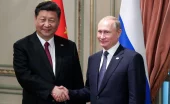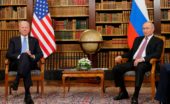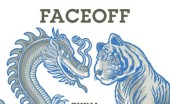Re The UN General Assembly Speaker Schedule is Here! I note that whoever will be speaking for Canada this year…
Vladimir Putin & Russia August 2024-
Written by Diana Thebaud Nicholson // September 4, 2024 // Russia // No comments
Pro-Putin movement expands across the former Soviet bloc – here’s why
Stefan Wolff, Professor of International Security, University of Birmingham
(The Conversation) As Russia keeps pounding Ukrainian cities with airstrikes and advances along the frontline in Donbas, regional elections in two states in eastern Germany have seen a surge of support for parties on the extreme right and extreme left.
What is particularly concerning is that both parties oppose support for Ukraine and back a more Kremlin-aligned view of the Russian aggression against Ukraine. They put most of the blame on the west for provoking Russia and tap into a reservoir of fear of being dragged into a full-blown military confrontation with Moscow.
Such views, and their success at the ballot box, are not unique to the former East Germany. Other states in central and eastern Europe that were under Soviet control until 1989 have seen the rise of similar sentiments, most notably among them EU and Nato members Slovakia and Hungary.
The same is true for some states that were formerly part of the Soviet Union, such as Azerbaijan and Georgia. Representing a curious mix of fear, resentment and nostalgia, this does not mean the restoration of the Soviet bloc by stealth, but it points to an ideological consolidation in at least part of that region.
In Hungary, this pro-Russian position is predominantly associated with the country’s populist prime minister Viktor Orbán. In power since 2010, Orbán has moved himself, and his country, away from the liberal democratic ideals that he espoused in the late 1980s and early 1990s.
… Outside Nato and the EU, other leaders have also cosied up to Putin. One example is Azerbaijan’s long-serving ruler, Ilham Aliyev, who visited Moscow in April 2024 and welcomed Putin to Baku in August. … And then there is Georgia – once a beacon of democratic renewal in the post-Soviet space and now gradually sliding into pro-Russian autocracy. Tbilisi and Moscow have gradually rekindled ties under the Georgian Dream political party, which has ruled the country for more than a decade, despite the 2008 Russian-Georgian war.
3 September
Mongolia ignores an international warrant for Putin’s arrest, giving him a red-carpet welcome
(AP) Mongolia and Russia signed agreements to design and study the feasibility of a power plant upgrade in Ulaanbaatar and to ensure the supply of Russian aviation fuel to Mongolia. Another agreement covered an environmental study of a river where Mongolia wants to build a hydroelectric plant that Russia is concerned would pollute Lake Baikal on the Russian side. Putin also outlined plans to develop the rail system between the countries.
He invited the Mongolian president to attend a summit of the BRICS nations — a group that includes Russia and China among others — in the Russian city of Kazan in late October. Khurelsukh accepted, according to Russian state news agency RIA Novosti.
Putin gets lavish welcome in Mongolia despite ICC warrant
(Reuters) – Russian President Vladimir Putin received a red carpet welcome on Tuesday on a state visit to Mongolia, whose failure to arrest him under a warrant from the International Criminal Court was criticised by Ukraine as a blow against justice.
Kremlin spokesman Dmitry Peskov said last week that Moscow had no worries about any action in connection with the warrant, as Russia had a “great dialogue” with Mongolia and all aspects of the visit had been discussed in advance.
“Relations with Mongolia are among the priorities of our foreign policy in Asia. They have been brought to a high level of comprehensive strategic partnership,” Putin told Khurelsukh.
… Mongolia is on the planned route of a major pipeline that Russia wants to construct in order to carry 50 billion cubic metres of natural gas a year from its Yamal region to China.
The project, Power of Siberia 2, is part of Russia’s strategy to compensate for the loss of most of its gas sales in Europe since the start of the Ukraine war. It is the planned successor to an existing pipeline of the same name which already supplies Russian gas to China and is due to reach its planned capacity of 38 billion cubic metres per year in 2025.
24 August
The fall of Vladimir Putin is now only a matter of time
Ukraine’s incursion into Kursk will have been intended to bring forward the end of the dictator’s rule
Daniel Hannan
(Telegraph UK) This time, Ukraine caught the Russians off guard. Some 400 square miles have been seized, and an estimated 2,500 Russian conscripts captured, with perhaps 3,000 more now kettled south of the river Sejm. The Europeans and Americans have been every bit as blindsided by the speed of the advance as the Russians.
I would write that “no one saw this coming” but, throwing modesty to the winds, I did point out in this column just over a year ago that there was a short-cut available: “Ukraine could launch a massive left hook through Kursk, aiming to cut off the enemy’s forces”. What I had in mind was a flanking stroke that would sever Russian supply-lines, rather as the Israelis stopped the successful Egyptian advance in 1973 by launching a counter-offensive far in their rear, on the other side of the Suez Canal.
In retrospect, I was too optimistic. It is easier to advance across these sparse steppelands than to hold them. Russians and Ukrainians, who won the decisive battle of the Second World War at Kursk in 1943 – the largest armoured battle in history and, on most measures, the largest battle of any kind – understand that better than most.
Still, this is the most significant Ukrainian victory in two years. Russian infrastructure is being degraded, bridges thrown down, gas installations hit. More airfields, refineries and supply depots are now within range. The gas plant in Sudzha has had its rail links cut. The nuclear power station in Kursk is at risk. Around 130,000 Russian civilians have been displaced.
22 August
Russian Attitudes About Putin Might Be Shifting
Negative remarks on social media have increased since Ukrainian troops launched an incursion, according to a firm that tracks Russian attitudes.
(NYT) While news outlets in Russia have tried to put a more positive spin on the developments in the war, focusing on the Russian government’s humanitarian response, some Russian social media users have expressed discontent.
Many of the online postings, according to the analysis by FilterLabs AI, say Ukraine’s advance is a failure of the Russian government and, more specifically, Mr. Putin.
… Positive attitudes about Mr. Putin took a hit last year after a short-lived armed rebellion led by Yevgeny Prigozhin, the head of a Russian paramilitary force. But the shift in sentiment has appeared sharper in the days since Ukrainian troops launched their incursion into the Kursk region of western Russia.
21 August
Ukraine’s drones hammer Moscow, bringing a harsh message to Russian oligarchs
War is coming and you cannot sit it out as spectators
Robert Clark, director of defence and security at Civitas.
(The Telegraph UK) It won’t have escaped even the most casual observer that Russian tyrant Vladamir Putin is having a disastrous summer. The highly successful Ukrainian incursion into the Russian territory of Kursk has cast doubt on his ability to maintain the control which is essential to his grip on power.
Now that Ukrainian forces hold more than 1,250 square kilometres of Russian territory – a psychologically damaging situation which has not occurred since the Second World War – Putin’s worries will only have been magnified by successful drone strikes overnight and this morning on Moscow itself.
This is a very smart tactic by the Ukrainians, who increasingly overcome their disadvantages in manpower and conventional munitions by exploiting gaps in Russian defences.
Today’s drone operations resulted in all three of Moscow’s major airports shutting down, causing widespread travel disruption. Wealthy Muscovites far removed from the carnage and brutality of the Donbas woke up this morning to a real bombardment, and the terrifying noises and experiences of air defences shooting down drones over their leafy capital.
… It was either by design or delicious coincidence that Moscow was under attack as Putin was returning from his visit to Chechnya, demonstrating further the incapability of the Russian intelligence services and again further eroding Putin’s position in the eyes of his people.
The level of psychological damage done to Muscovites, who largely view Putin’s war in Ukraine as removed from their day-to-day business, has now been reinforced. After the attack last year, they were assured that it wouldn’t happen again and Putin said he knew what needed to be done to strengthen Moscow’s defences. Now it has happened again and Putin is exposed as incompetent.
This matters, as so far Putin has been at pains to spare the residents of the main Russian cities – Moscow and St Petersburg – from the horrors of the war in order to maintain their support. With these strikes, Ukraine lets the Russian middle classes and oligarchy know that they cannot sit the war out as spectators.
15-18 August
Kremlin response to Kursk incursion shows how Putin freezes in a crisis
When Russian President Vladimir Putin’s authority is tested, his response often lacks quick, decisive action that lives up to his bellicose rhetoric.
(WaPo) Faced with crisis, Vladimir Putin tends to freeze.
Moscow’s slow, fumbling military response to Ukraine’s surprise occupation of parts of the western Kursk region is the latest example of the Kremlin chief failing to respond with quick, decisive action to match his bellicose rhetoric.
The Kursk incursion is the fourth major blow to Putin’s authority since his February 2022 invasion of Ukraine and highlights the weaknesses of a top-down autocracy that operates largely on fear and punishment.
Putin is crippled by the West’s preemptive attack on Russia
Kyiv’s bold operation in Kursk has already transformed the wider conflict in ways that have not been fully appreciated
Francis Dearnley
(The Telegraph UK) Western boldness has transformed the military and political reality. Militarily, the operation has forced Moscow to withdraw thousands of troops from the front in Ukraine, where – after some of the bloodiest fighting Europe has seen in 80 years – it sacrificed tens of thousands of men to secure the same amount of territory that Kyiv has taken in Russia in just over a week. The Kremlin hoped keeping up the pressure would trigger a decisive breakthrough. With troops and defensive weapons now pulled out, that will be difficult, if not impossible.
Even more vitally, and unappreciated by many commentators, is the fact this will impede Russia for the rest of the conflict. To prevent future embarrassing incursions, Vladimir Putin will be obliged to shift men and materiel to other sectors of Russia’s border with Ukraine as a protective measure, again thinning out the resources he has at the front.
Politically, both inside and outside Russia, the operation also has far-reaching consequences. Abroad, whispered talk in the West of ceasefires and negotiations has ceased, replaced with conversations about new weapons permissions and deliveries.
More critically, however, the battle has changed the debate within Moscow. No more can the Kremlin argue for freezing the front lines as the price for entering renegotiations, for to do so would see Kyiv holding onto ground within Russia’s own borders
Ukraine’s Kursk offensive marks Putin’s third major humiliation of the war
By Brian Whitmore
Regardless of how this plays out militarily, the political damage is done, and it is rooted in the nature of Russian politics. As I have written, under Putin, the Russian state has become, in essence, an organized crime syndicate. Its internal logic, processes, incentive structure, and behavior resemble those of a mafia family. And the most destabilizing moment for a crime syndicate is when the mafia boss looks weak.
(Atlantic Council) …the invasion and occupation of parts of Kursk Oblast marks the third major military humiliation the Kremlin leader has suffered since launching his full-scale assault on Ukraine in February 2022.
The first humiliation: February-September 2022
(Atlantic Council) When Russia launched its invasion in the beginning of 2022, most analysts believed the war would be over in a matter of weeks. But by the end of 2022, Russia’s war machine no longer looked invincible—instead, it looked quite fallible and beatable. And Putin no longer looked like a ten-foot-tall master strategist—instead, he looked small.
The dismal performance of the Russian Armed Forces in 2022 weakened Putin domestically and divided the Russian elite into hawks, who wanted nothing short of the complete conquest of Kyiv, and kleptocrats, who wanted to go back to the prewar status quo. Ukrainian forces prevented Russia’s complete conquest, while Putin continued to isolate and impoverish his country, and therefore neither group was happy. Which set the stage for Putin’s next humiliation
The second humiliation: June-August 2023
Putin’s second great military humiliation came not at the hands of Ukraine, but from within his own inner circle. The June 2023 mutiny of Yevgeniy Prigozhin and his Kremlin-connected mercenary army, the Wagner Group, exposed deep cracks in the Russian political elite as well as the hollowness and rot of the Russian Armed Forces.
13 August
Putin must explain how his war allowed Russia to be invaded – and offering locals £90 each won’t do it
Sergey Radchenko
He maintains a tyrant’s grip, but Ukraine’s incursion into Kursk throws further doubt on his claims about the ‘special operation’
Ukraine’s Kursk operation overlaps with a poignant anniversary. Twenty-five years ago, Vladimir Putin – previously the director of the Russian security service (FSB) and the secretary of Russia’s security council – replaced the short-lived prime minister Sergei Stepashin.
Putin’s appointment on 9 August 1999 happened just two days after a group of Chechnya-based militants launched a bloody raid on neighbouring Dagestan. The Dagestan raid – followed by a series of apartment bombings that stunned the Russian public – gave Putin a justification to invade Chechnya and cement his grip on power.



